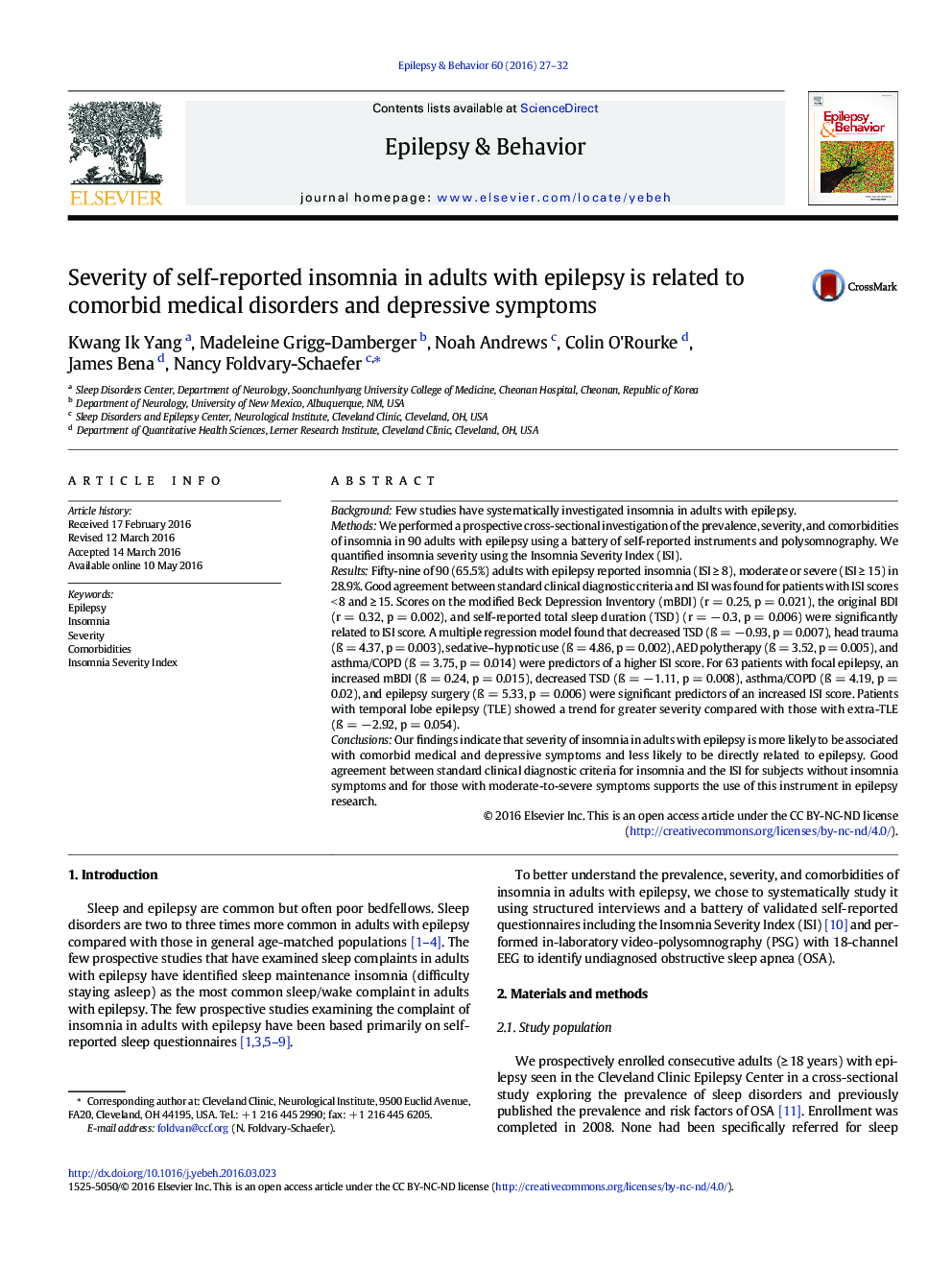| کد مقاله | کد نشریه | سال انتشار | مقاله انگلیسی | نسخه تمام متن |
|---|---|---|---|---|
| 6009875 | 1579831 | 2016 | 6 صفحه PDF | دانلود رایگان |
- We studied the prevalence, severity, and comorbidity of insomnia in epilepsy.
- Over 65% of adults not selected for sleep symptoms reported insomnia.
- Insomnia was associated with shorter sleep, hypnotics, head trauma, and asthma/COPD.
- AED polytherapy increased the likelihood for moderate-to-severe insomnia.
BackgroundFew studies have systematically investigated insomnia in adults with epilepsy.MethodsWe performed a prospective cross-sectional investigation of the prevalence, severity, and comorbidities of insomnia in 90 adults with epilepsy using a battery of self-reported instruments and polysomnography. We quantified insomnia severity using the Insomnia Severity Index (ISI).ResultsFifty-nine of 90 (65.5%) adults with epilepsy reported insomnia (ISI â¥Â 8), moderate or severe (ISI â¥Â 15) in 28.9%. Good agreement between standard clinical diagnostic criteria and ISI was found for patients with ISI scores < 8 and â¥Â 15. Scores on the modified Beck Depression Inventory (mBDI) (r = 0.25, p = 0.021), the original BDI (r = 0.32, p = 0.002), and self-reported total sleep duration (TSD) (r = â 0.3, p = 0.006) were significantly related to ISI score. A multiple regression model found that decreased TSD (à= â 0.93, p = 0.007), head trauma (à= 4.37, p = 0.003), sedative-hypnotic use (à= 4.86, p = 0.002), AED polytherapy (à= 3.52, p = 0.005), and asthma/COPD (à= 3.75, p = 0.014) were predictors of a higher ISI score. For 63 patients with focal epilepsy, an increased mBDI (à= 0.24, p = 0.015), decreased TSD (à= â 1.11, p = 0.008), asthma/COPD (à= 4.19, p = 0.02), and epilepsy surgery (à= 5.33, p = 0.006) were significant predictors of an increased ISI score. Patients with temporal lobe epilepsy (TLE) showed a trend for greater severity compared with those with extra-TLE (à= â 2.92, p = 0.054).ConclusionsOur findings indicate that severity of insomnia in adults with epilepsy is more likely to be associated with comorbid medical and depressive symptoms and less likely to be directly related to epilepsy. Good agreement between standard clinical diagnostic criteria for insomnia and the ISI for subjects without insomnia symptoms and for those with moderate-to-severe symptoms supports the use of this instrument in epilepsy research.
Journal: Epilepsy & Behavior - Volume 60, July 2016, Pages 27-32
